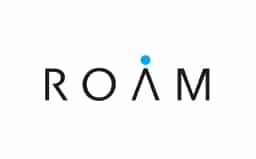Python is a high-level, object-oriented programming language with dynamic building options and fast development cycles. However, many may not know that it’s also one of the safest programming languages with useful applications in healthcare.
Python is one of the most popular programming languages, with its use spanning between web apps and AI software development, multiple programming paradigms, and database access, all of which are integral in developing healthcare applications.
Table of Contents:
#1: Python framework Django
#2: Python framework Flask
#3: Why Python is useful in healthcare
#4: Healthcare startups that use Python
#5: Python for healthcare apps
Before discussing the advantages and applications of Python in healthcare, let’s take a look at two important Python frameworks: Django and Flask.
1. Python framework Django
Django is a high-level Python framework widely used for developing web applications, including scientific computing platforms and social networks. Django provides developers with the unique advantage of enabling rapid and clean app development without needing too much code.
Django provides tons of packages containing built-in modules, so the developer does not have to create them from scratch or download them separately. There is Sentry, which helps notify you when your Django application goes down. To help you build APIs, there are Django Rest framework packages.
Image credit: by Faisal M on Unsplash
This framework is highly secure with built-in protection against three targeted security attacks: XSS, CSRF, and SQL injection. That enhances the security of a web application built on Django by preventing these typical mistakes associated with Python coding.
In addition to being a highly scalable open-source framework, which allows developers to modify and customize decoupled components to meet individual project needs, Django’s versatility and robust security features make it useful in creating healthcare applications.
2. Python framework Flask
Flask is primarily used for building APIs and prototypes. Flask is also highly-scalable, providing an ecosystem of components that can be modified in a way that suits your project preferences. For instance, we used Flask when developing this AI-enabled mental health platform.
Flask offers modular code blocks, which allows for multiple applications and distribution across many servers. Furthermore, just like Django, Flask is very flexible and delivers high performance. However, while being one of the most used Python web frameworks, it still has fewer users than Django because Flask requires more time to configure.
 3. Why Python is useful in healthcare
3. Why Python is useful in healthcare
Some of the reasons that make Python an invaluable programming tool for healthcare apps development include:
- Python can be easily used to create a web or desktop application. That’s convenient if you want to have the diversity of building something that uses internet connectivity or can work completely autonomously, without an internet connection. This flexibility of running on a variety of operating systems is compounded by a clear syntax and a large community.
- Python frameworks allow for secure exchange of information with other solutions, which is fundamental for unchaining digital healthcare data. Python’s features for integrating with databases on the back end perfectly align with the HIPAA rules.
- Python is a great language when you want to analyze large sets of data using machine learning algorithms to get meaningful insights. The programming language is often preferred by data scientists because of all of the extensive libraries available such as NumPy, Pandas, and SciPy.
Related: Medical Chatbots: The future of the healthcare industry
HIPAA Compliant Video Conferencing and Messaging
Remote Patient Monitoring App Development
4. Healthcare startups that use Python
These healthcare startups are using Python frameworks to build applications and platforms to ease patient care and treatment systems.
AiCure
AiCure, a New York-based startup funded by venture capitalists and the National Institutes of Health, is bridging the gap between diseases and effective treatments using AI.

For example, face recognition and pill recognition technologies help to verify that patients are taking the right medicine.
Roam Analytics
This Silicon Valley startup is set to build a big-data healthcare app that mines loads of datasets from various sources. The solution outputs structured patient data to optimize patient care and ensure high-quality outcomes for clinical trials.
As a result, hospitals and healthcare organizations can use Roam Analytics to create structured data sets from electronic medical records data to improve their knowledge about patients and provide data-driven solutions and interventions to improve patient care.
Drchrono
Drchrono is an innovative EHR platform for healthcare providers who wish to have their practice at their fingertips, literally. Based in Silicon Valley, Drchrono provides an end-to-end practice management platform with customizable workflows and a patient portal that allows appointment scheduling and direct messaging with patients.
Related: How to Build a Doctor Scheduling App
What’s more, Drchrono also allows patients to self-check-in and supports automated appointment reminders to ease clinical workflows. To drive profitability, Drchrono has a fully integrated billing system and revenue cycle management.
Drchrono is built using Python-based frameworks that allow unlimited options to develop unique models and systems and to customize the functionality of an application.
Fathom Health
Fathom Health is a San Francisco-based medical startup that leverages deep learning and natural language processing (NLP) models to read, analyze, and structure datasets in electronic health records.

Automated medical coding systems are not just a future trend but a present reality transforming healthcare administration.
Qventus
California-based startup Qventus provides a real-time predictive platform that helps hospitals forecast patient influx and helps them initiate appropriate interventions and allocate hospital resources accordingly. Qventus uses Python and Java to build its backend applications.

Python for healthcare apps
As you can see, Python is not only useful when custom developing mobile apps, but it is also invaluable in creating healthcare platforms that are beginning to reshape the narratives in healthcare.
Check out our portfolio to explore some of the healthcare apps we’ve designed and developed.
With more healthcare startups leveraging this programming language to build their systems, medical care will continue to experience advances in electronic health records, disease diagnostics, and clinical workflow to achieve AI-driven healthcare solutions.
We’re app developers in Los Angeles, Miami, New York, Las Vegas, with our head office in Orange County.
Schedule a call with us to learn how your healthcare app can benefit from using Python.
Related Articles:



